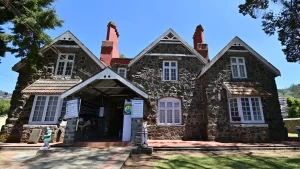Is Indian Education System Transforming?

Happy black teacher and her students wearing protective face mask in the classroom. Teacher is giving them their test results. (Happy black teacher and her students wearing protective face mask in the classroom. Teacher is giving them their test resu
While there are 80 private schools in the country, only 67 of them are affiliated to a school unit. Private education is also used in small businesses and many of the Indian firms use public schools to train workers. The education system in India has been highlighted many times.
In spite of an ample selection of educational resources, India still has a number of inadequate and under-invested instructional facilities for its students. In addition, some Indian schools are so dilapidated that they can only be staffed by able-bodied men, who often struggle through the school year on limited basic supplies such as books and uniforms. Inability to pay for adequate supplies would cause substantial financial losses during the coming school year which might reduce the likelihood that students will take on jobs or attend college.
Suitable infrastructure
The students will be able to study and learn properly if suitable infrastructure is provided such as big classrooms with proper ventilation, windows and doors, comfortable benches, boards, etc. Constant supply of electricity should be there with electronic fitting of fans, lights and air conditioners if required.

General Views:
- In response to these constraints, many parents have sought out alternatives to academic “labor” practices during high school years.
- In addition to having quality academic programs available at their local public schools, parents have been turning towards private institutions that offer alternative options in order to meet their child’s education needs.
- The residential schooling program has emerged as an alternative form of high school that offers an educational benefit for children with special needs including those who are born with special educational needs (SEN).
It is estimated that over 4 million mostly orphaned children from different homes around India have been forced or coerced into this program by their families’ unwillingness or inability to provide adequate housing and food for them once they enter this program. These children are enrolled in residential schools where they undergo an eight- or 12-week course of intensive tutoring to learn how to succeed in daily life.
The residential school is not only an educational program but also a model for parents to provide a safe and secure setting in which children may receive protection and support from harm. Similar programs exist in the US, Italy and some other countries with addresses, such as Los Angeles and Miami, Florida. The private sector may also provide residential schools in the United States, Italy and elsewhere with tailored programs that are specifically designed to meet the needs of special needs children.





